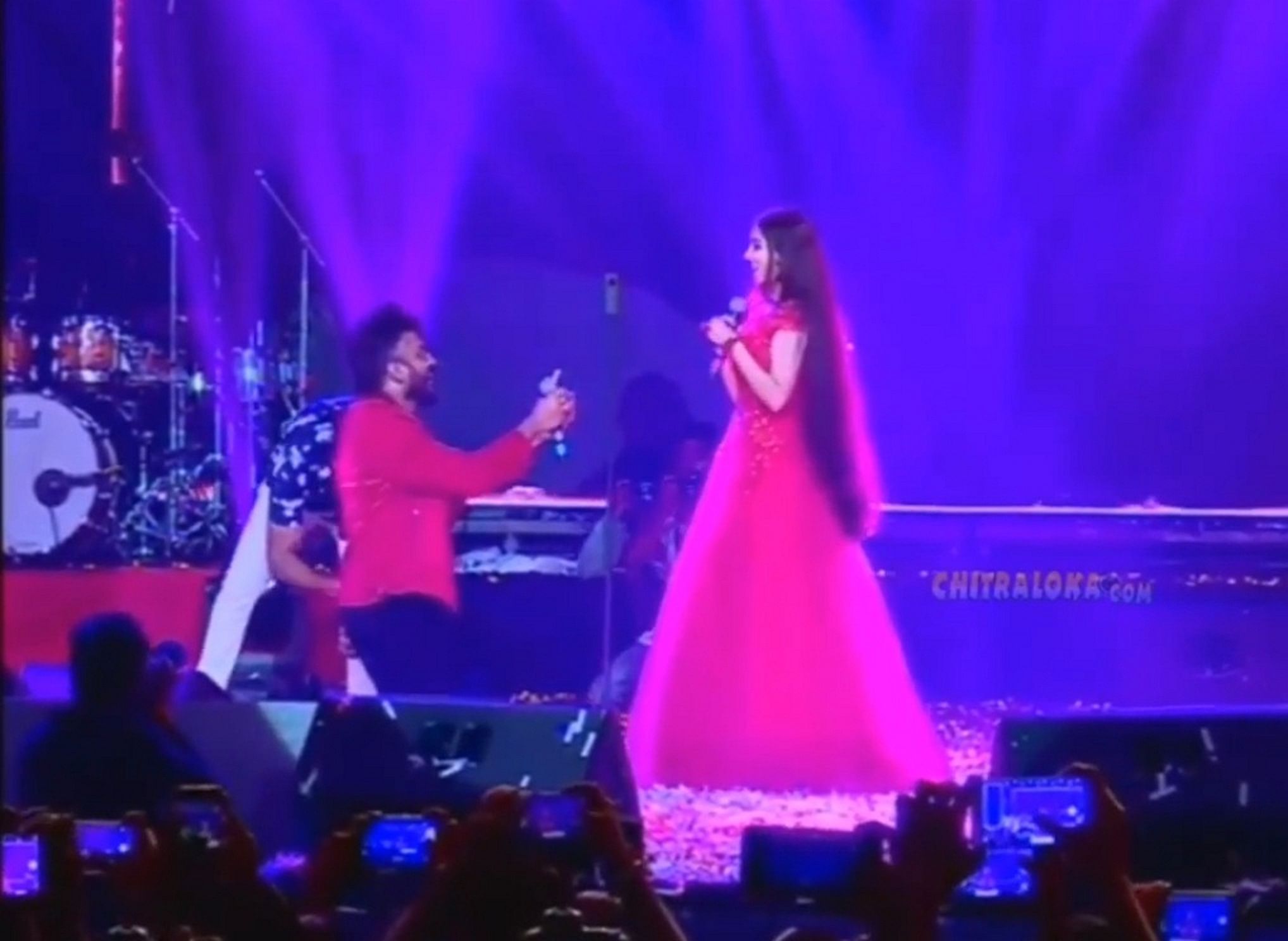
Kannada rapper and former Bigg Boss contestant Chandan Shetty proposed to his former co-contestant Niveditha Gowda on the stage of the Yuva Dasara recently. This act earned much wrath from netizens.
The minister in charge of Mysuru district, V Somanna, was ticked off by the fact that the duo used a Dasara stage for the act. He reportedly said that he would ask the police to issue Shetty a showcase notice. Simultaneously, three private complaints were also registered against Chandan Shetty.
Soon after, the rapper apologised on a video message and stated that the act was done for pure entertainment and he had not informed the organisers about it.
Metrolife spoke to some performing artistes and event organisers about the online debate that ensued, and what the absolute don’t-do’s on the stage are.
‘India is not ready for such acts’
Gubbi, Kannada rapper
Karthik Gubbi says professional artistes are expected to know what one can do on a stage and one cannot.
“What Chandan Shetty did was an act inspired by the West. We are all heavily influenced by the West. I feel that India is not ready for such things yet; a lot of people don’t even understand what was done on stage,” he says.
Gubbi adds that the proposal would have seemed normal at a show organised by the artiste himself.
“But using a stage like the Mysore Dasara festival, which is considered holy, for an act like this was wrong. People stretching this matter is also not right since the artiste has apologised for the event,” he says.
Don’t do’s: Explicit content is an absolute no-no. Also, do not retort to rude comments from the audience.
‘Nada Habba’ calls for a certain decorum’
Vasu Dixit, Singer-songwriter
Vasu Dixit, who hails from Mysuru, says that the Mysuru Dasara is special to him.
“I have written a song on Mysuru and know the values that the city is connected to. Times are changing and so are people. Decorum depends on where one is performing. Many things which can be done at a club gig or an album launch cannot be accepted at other stages,” he says.
He adds, “The Dasara celebrations, which is also called the ‘Nada Habba’, calls for a certain decorum. Both artistes and the organisers should be aware of their responsibilities on such a curation.”
Don’t do’s: I would never walk off stage in the middle of a show, use swear words however cool it might sound or go on stage intoxicated.
‘Organisers should have thought about it’
M C Bijju, Hip-hop and rap artiste
Bijju feels that the duo’s act is a personal thing, and it is cool to do such things on stage.
“It is the dream of every artiste to do such acts on stage: publicly announce an event from his life to his fans,” he says.
But many are enraged about using a government-arranged platform for a personal need.
“It looks like the organisers were aware of the plan, since confetti went up in the air when Chandan went down on his feet. The organisers should have properly thought about it,” he adds.
Don’t do’s: Disrespecting people or instruments on stage.
‘Act can be understood as entertainment’
Vaibhav Ali, Emcee and co-partner, With Life Events, notes that most events are situational-based.
He says, “This entire situation has been blown out of proportion by the minister. The duo are artistes and the act can be understood as entertainment. There are many factors that come into play and everything depends on the occasion of the event.”
Vaibhav says that event organisers sit down with the artistes and discuss how they will engage with the clients/audience.
“Proposing to someone is not a big thing but the sanctity of the event does matter,” he adds.
Don’t do’s: Profanity, comments on sponsors, smoking or drinking on stage, discussions/comments on specific communities or groups, politics and religion and other personal remarks, are a strict no-no.
‘Artist taking advantage of a stage is not acceptable’
Oum Pradutt, Managing director of Phase 1 Events & Entertainment Pvt Ltd.
Oum says that event organisers must be informed by the artiste about whatever will be presented on the stage.
An artiste taking advantage of a stage and doing something by himself is not acceptable, irrespective of how big or small the artiste is.
“There is a certain cue sheet that is prepared and it has to be followed professionally. Once this is communicated, organisers should seek permission from the authorities required, according to protocol. This includes discussing if the act is acceptable or not and will have an impact. According to this, an act is allowed or disallowed on stage,” he adds.
However, Oum points out that here, the act doesn’t look unplanned.
“If the organisers knew about the proposal, it’s not sure why there is such a hullaballoo raised about it,” he adds.
Don’t do’s: No surprises on stage